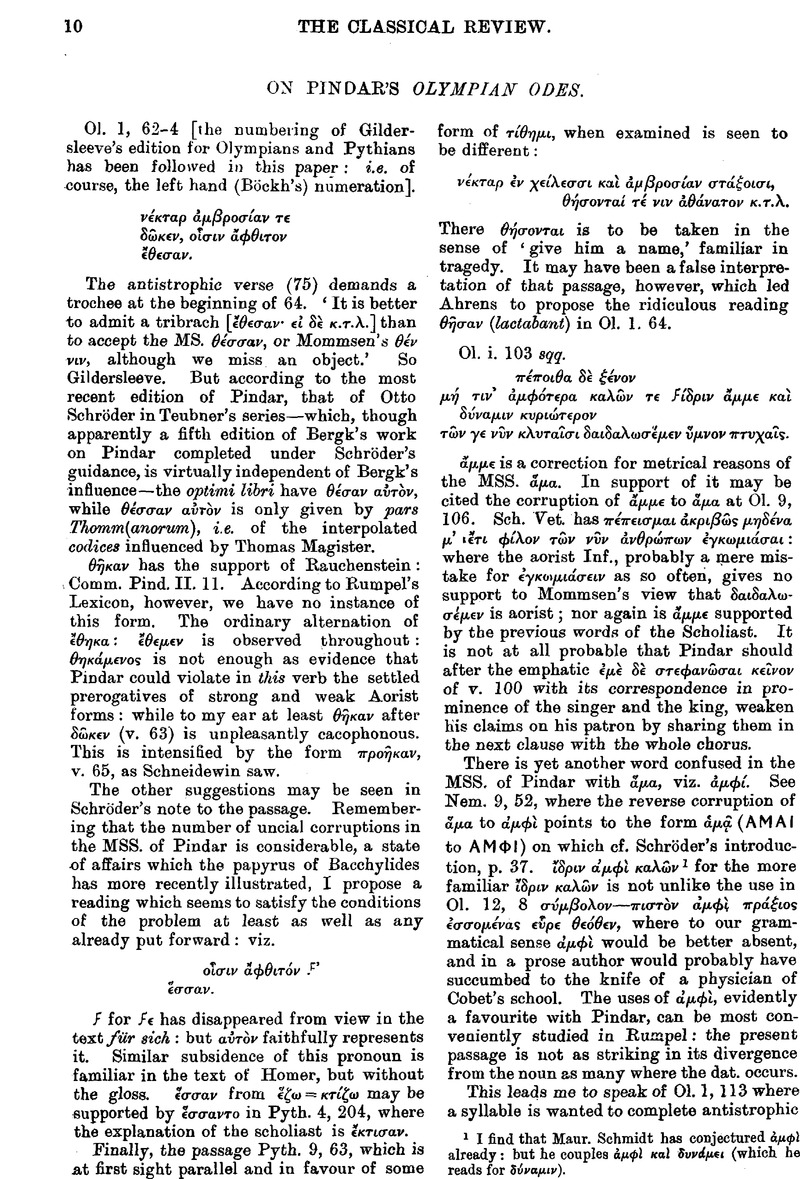Article contents
On Pindar's Olympian Odes
Published online by Cambridge University Press: 27 October 2009
Abstract

- Type
- Review Article
- Information
- Copyright
- Copyright © The Classical Association 1901
References
page 10 note 1 I find that Maur. Schmidt has conjectured μφ already: but he couples μφ κα δυνμɛι (which he reads for δναμιν).
page 11 note 1 Cf. Agamemnon 649, Dindorf: ![]() .
.
page 12 note 1 Cf. the reading of B in 91–2 τανσας αὐδσομɛν for αὐδσομɛν also of Codex D at Isth. 1, 15 κα ταν for καὶ τ: that is, the abbreviation for ον, ″, has been wrongly added. I do not lay stress en the frequent corruption of neuter adjectives used adverbially from pl. into sg. as at Pyth. 10, 63: it may be due to other causes.
page 12 note 2 Cf. Fulgentius, Mythology, i. 13: corvus secundum Pindarum solus inter omnes aves sexaginta quattuor significationes habet vocum. This is put as Frag. 285 (with a query) in Schröder. The conjecture of Welcker that Ol. 13, 99 is referred to (by a corruption of κρυκος to κρυκος ?) is very wild. I see no reason to suppose Fulg. to be mistaken.
page 13 note 1 It is perhaps worth while pointing out that συλαθɛς γενεων in O1. 9, 90 means ‘deprived of the beardless, his prey.’ For the savage tone of boyish exultation cf. Gildersleeve on O1. 8, 69.
- 1
- Cited by


